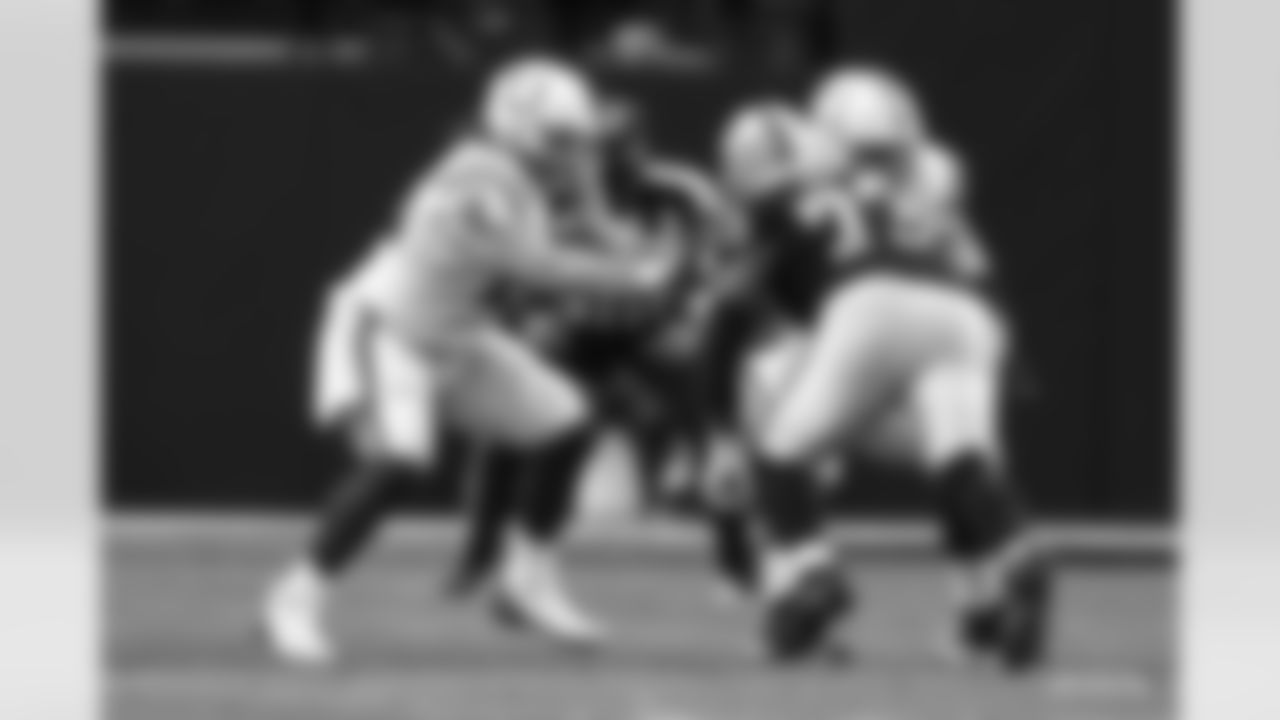2021 League Year
The 2021 NFL league year begins at 4 p.m. ET on Wednesday, March 17. Once the new league year begins, a few things can happen:
-Teams can sign unrestricted free agents with expired contracts from other teams.
-Trades can become official.
-Teams must submit qualifying offers to restricted and exclusive rights free agents (more on them later).
Also, all 32 teams need to be under the 2021 salary cap before 4 p.m. ET.
Legal negotiating window
While unrestricted free agents with expired contracts cannot officially sign until the start of the new league year, they are allowed to enter negotiations with other teams on Monday, March 15. This period lasts from March 15 until the beginning of the new league year on March 17.
Prior to March 15, teams may only negotiate new contracts with their own pending free agents.
Unrestricted free agent
Any player with four or more accrued seasons and an expired contract becomes an unrestricted free agent who can enter contract negotiations with other teams on March 15 and then sign with any team after 4 p.m. ET on March 17. These are veterans and younger players whose four-year rookie contracts are expiring.
The Colts have 15 unrestricted free agents: Quarterback Jacoby Brissett, running back Marlon Mack, wide receiver T.Y. Hilton, tight end Trey Burton, offensive linemen Le'Raven Clark, Chaz Green and Joey Hunt, defensive linemen Justin Houston, Denico Autry and Al-Quadin Muhammed, linebacker Anthony Walker, cornerbacks Xavier Rhodes and T.J. Carrie and safeties Malik Hooker and Tavon Wilson.
One additional note here: If a player is an unrestricted free agent because he was released — not because his contract expired — he is free to sign with any team at any time, and does not have to wait for March 17 to make his deal official. For instance, former edge rusher J.J. Watt signed with the Arizona Cardinals earlier in March because he was released by the Houston Texans in February.
Restricted free agent
A restricted free agent is a player with fewer than four accrued seasons in the NFL but has an expired contract. The restricted part plays out like this: The player can sign an offer sheet with any other team, but the team for which he was under contract in 2020 has the right to match that offer sheet and may be entitled to draft pick compensation if they decline to match it.
The compensation is based on the type of tender placed on the restricted free agent. Teams have four options:
First round tender: If a player from team X signs an offer sheet with team Y and that offer sheet is not matched by team X, team Y must send team X its first round pick as compensation. However, if a restricted free agent signs the one-year contract from the first-round tender, it's the most expensive of all the tenders.
Second round tender: Same rules as the first round tender, only with a second round pick returning to team X.
Original round tender: If a player was drafted in, say, the sixth round, then team Y would send a sixth round pick to team X as compensation for signing him.
Right of first refusal: No draft compensation is provided if a player was undrafted and team X doesn't match team Y's offer sheet. This is the least expensive of all the tenders.
A recent example of how this all works came when tight end Jack Doyle, a former undrafted free agent, became a restricted free agent in 2016. The Colts placed a right of first refusal tender on him, meaning he was free to negotiate with other teams but the Colts could match those terms. Doyle did not sign an offer sheet with another team and was brought back on a one-year contract.
Or a non-Colts example of how a player can be lost to restricted free agency: The Chicago Bears placed a right of first refusal tender on wide receiver Cameron Meredith in 2018, who then signed an offer sheet with the New Orleans Saints. The Bears declined to match the Saints' offer, so Meredith signed with New Orleans and the Bears did not receive any draft pick compensation because Meredith was not drafted.
Anyways, the Colts have four restricted free agents in 2021: Wide receiver Zach Pascal, tight end Mo-Alie Cox, cornerback Tremon Smith and safety George Odum.
Exclusive rights free agent
Any player with fewer than three accrued seasons and an expired contract can be offered a one-year contract at the league minimum (based on how many credited seasons he has). The player cannot negotiate with other teams if his team offers him a contract.
The Colts had two exclusive rights free agents and signed them both to one-year extensions in January: Wide receiver Ashton Dulin and defensive tackle Taylor Stallworth.
Franchise tag
There are two kinds of franchise tags: The exclusive franchise tag, which is rarely used, and the non-exclusive franchise tag, which is much more common.
A player who has the exclusive franchise tag placed on him cannot negotiate with other teams, and will receive a one-year deal for whichever of these numbers is greater: The average of the five-largest per-year salaries of players at his position, or the amount of the non-exclusive franchise tag. For example: The Dallas Cowboys used the exclusive franchise tag on quarterback Dak Prescott in 2020, preventing other teams from negotiating with him.
The non-exclusive franchise tag, which is more commonly used, allows players to negotiate with other teams. However, if a team signs a player who has the non-exclusive franchise tag placed on him, they must send that player's former team two first-round picks as compensation if that player's former team declines to match the offer sheet. Players who receive the non-exclusive franchise tag are offered a one-year contract with a salary that's the higher of these two numbers: Either the cap percentage average for his position or 120 percent of his prior year salary.
A player who has the franchise tag placed on him has until 4 p.m. E.T. on July 15 to negotiate a multi-year contract extension. After that deadline, a player can only sign a one-year contract and cannot sign a multi-year extension until after the regular season ends. The franchise tag can be rescinded by the team at any time if the player has not yet signed it.
Teams can only use one franchise tag or transition tag per year.
The Colts have used the franchise tag six times: 2001 (tight end Marcus Pollard), 2004 (quarterback Peyton Manning), 2007 (edge rusher Dwight Freeney), 2011 (Manning), 2012 (edge rusher Robert Mathis) and 2013 (punter Pat McAfee).
Ten teams used the franchise tag in 2021: The Bears (wide receiver Allen Robinson), Broncos (safety Justin Simmons), Buccaneers (wide receiver Chris Godwin), Cowboys (Prescott), Giants (defensive lineman Leonard Williams), Jaguars (tackle Cam Robinson), Jets (safety Marcus Made), Panthers (tackle Taylor Moton), Saints (safety Marcus Williams) and Washington (guard Brandon Scherff).
Transition tag
The transition tag is used less than the franchise tag because, while it allows teams to match an offer sheet, it does not provide any draft pick compensation if that player is allowed to leave. The transition tag has only been used five times in the last decade: The Steelers used it on linebacker Jason Worilds in 2014; the Browns used it on center Alex Mack in 2014; the Dolphins used it on tight end Charles Clay in 2015; the Bears used it on cornerback Kyle Fuller in 2018; and the Cardinals used it on running back Kenyan Drake in 2020.
The Colts have used the transition tag twice, in 1996 (linebacker Quentin Coryatt) and 1997 (cornerback Ray Buchanan).
Salary cap
The NFL and NFLPA set the 2021 salary cap at $182.5 million — a decrease of 8 percent from 2020 in the wake of the COVID-19 pandemic — and all 32 teams must be under the salary cap by 4 p.m. ET on March 17. However, teams can carry over unused cap space from the previous year, effectively increasing the amount of cap space they have available.
Compensatory picks
Alright, one last thing to consider in free agency. The NFL compensates teams who lose unrestricted free agents with draft picks, but the formula is pretty complicated. If you want a full, detailed explanation of it, OverTheCap has a good one here.
The NFL awards 32 comp picks per year between the third and seventh rounds (additional comp picks began to be awarded this year for minority head coaching/general manager hirings). The round awarded is based on contract size, percentage of offensive/defensive snaps played, awards earned and the balance of a given team's free agents lost versus free agents added.
For instance: The Los Angeles Chargers received a 2021 third-round pick, 97th overall, because Philip Rivers signed with the Colts, and because the Chargers did not sign another free agent who could "cancel" out Rivers.
Players who become unrestricted free agents because they were released before their contracts expired do not count toward the comp pick formula.
Some notable former Colts who were drafted with comp picks: safety Antoine Bethea (sixth round, 2006) and wide receiver Pierre Garcon (sixth round, 2008).
See the full list of the Indianapolis Colts free agents ahead of the beginning of the 2021 league year.

Unrestricted Free Agent
13 WR T.Y. Hilton

Unrestricted Free Agent
27 CB Xavier Rhodes

Restricted Free Agent
35 CB Tremon Smith

Unrestricted Free Agent
50 DE Justin Houston

Unrestricted Free Agent
7 QB Jacoby Brissett

Unrestricted Free Agent
31 S Tavon Wilson

Unrestricted Free Agent
54 LB Anthony Walker Jr.

Unrestricted Free Agent
75 T Chaz Green

Unrestricted Free Agent
62 G/T Le'Raven Clark

Restricted Free Agent
30 S George Odum

Unrestricted Free Agent
68 C Joey Hunt

Unrestricted Free Agent
25 RB Marlon Mack

Unrestricted Free Agent
29 S Malik Hooker

Restricted Free Agent
81 TE Mo Alie-Cox

Restricted Free Agent
14 WR Zach Pascal

Unrestricted Free Agent
97 DE Al-Quadin Muhammad

Unrestricted Free Agent
38 CB T.J. Carrie

Unrestricted Free Agent
96 DT/DE Denico Autry

Unrestricted Free Agent














